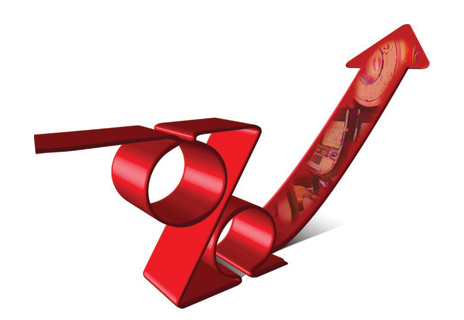Taxing Problem

In the last year, Mike DeWine and JB Pritzker have proven to the gambling industry that they can’t be trusted, and have generated a fair amount of angst in the legal sports betting world. Both governors pushed through tax hikes in existing markets. Some say the likely fallout out will be that consumers get a raw deal while politicians revel in increased cash flow.
Such is the state of legal sports betting in the U.S. Legal and live in 40 jurisdictions, operators entered agreements to offer wagering from Wyoming to Florida since 2018, when the U.S. Supreme Court overturned the Professional and Amatuer Sports Protection Act (PASPA). Six years on, trust has been broken.
Last July, DeWine, the Ohio governor, spearheaded legislation to double the wagering tax in his state. Operators entered the state January 1, 2023, and six months later had to rejigger their business plans to manage a 20 percent tax.
In Illinois, Pritzker earlier this year asked for an increase from 15 percent to 35 percent. Legislators did him one better, and the biggest operators in the state will pay close to 40 percent on adjusted gross revenue. As of early June, a new sliding-scale tax—20 percent at the bottom and up to 40 percent at the top—was awaiting Pritzker’s signature.
Operators said little when DeWine pushed through his increase. At 10 percent tax, Ohio was among the lowest-taxed U.S. jurisdictions in which to do business. While not optimal, 20 percent, stakeholders say, is manageable for many operators.
In Illinois, the biggest operators pushed back hard against any increase. The Sports Betting Alliance, comprised of BetMGM, DraftKings, Fanatics Sportsbook and FanDuel, sparked 53,000 Illinois residents to send emails decrying the proposed hike to lawmakers. It made clear that advertising spend and promotional offers would decline. Some of its members threatened to leave the state if the tax increase was approved. The proposed increase would make Illinois the second most expensive competitive-market state behind New York in terms of wagering tax.
“If the rules of the game are volatile, and everyone is waiting for the ‘other side’ to do something different, that’s not a good way to do business,” says Brian Wyman, a partner with The Innovation Group. “You’re going to see a backlash as other states come on.”
The Sweet Spot
Legal sports betting operators in the U.S. currently pay two taxes—a quarter of a percent federal excise tax plus state tax. On the state side, wagering taxes range between 6.75 percent in Iowa and Nevada to the aforementioned 51 percent in New York, New Hampshire and Rhode Island. The rate in New Hampshire and Rhode Island, along with Delaware’s 50 percent rate, come with a caveat. All are single-operator markets, and in New Hampshire, DraftKings willingly offered that rate in exchange for a monopoly.
Operators have long contended that 10 percent is the sweet spot for a sports betting tax rate. It allows them to reinvest in their product, offer attractive promotions, and make a profit. Consultant Brendan Bussmann of B Global says 15 percent is really the highest rate operators can weather without cutting back. Anything above that, and gaming companies have to rethink their business plans.
“I think anything above 15 percent hurts the consumer and hurts innovation,” Bussmann says.
Bussmann, a gaming consultant who works across the world with operators, suppliers, vendors and tribes, also says gaming is the only industry he can think of that “willingly pays taxes on its product” in addition to the fees and taxes required to get licensed, handle payroll, and the like.
For comparison, hotels sell rooms, and collect a tax in addition to the room rate that goes to state governments. Whatever money they earn after taxes, fees, payroll and operational costs is profit. Gambling companies pay all of the same costs plus a tax on their profit.
Operator Pushback
Politicians sell the idea that a higher tax will equate to higher tax revenue for a state. While it seems likely that the governments in Ohio and Illinois will take in more tax revenue, they may not bring in as much more as projected.
“Of course, as a legislator, you want as much money as you can get for the state,” says West Virginia Rep. Shawn Fluharty. “But it can become diminishing returns. If the rate is too high, the operators start pulling back on advertising and promotions, and then you’re not getting the whole player pool, so you’re getting less tax revenue.”
Wyman agrees and goes a step further.
“This is the same question as, how does any expense increase affect any company?” he says. “It’s like, how would this affect Red Lobster? They have to find the money somewhere. But they maybe don’t make enough money to find money somewhere else. They have to say, ‘We rob Peter to pay Paul.’
“At some point, you have to raise prices. (In sports betting,) for example, -110 might become -115.”
Everyone interviewed for this story agrees that tax increases will hurt the smallest operators the most. Like McDonald’s or WalMart, the biggest operators are better equipped to absorb changes in the cost of doing business. In online sports betting, DraftKings and FanDuel own 73 percent of the market across the U.S. More than a dozen other operators are left to fight for the rest.
In online gambling, DraftKings and FanDuel combine for 61 percent market share. The next three biggest operators in online sports betting are BetMGM, Caesars, and Penn Entertainment’s ESPN BET. The newly launched Fanatics Sportsbook continues to make gains.
All six of those companies have some sort of backstop to help them manage changes in market conditions, whether that be money in the bank, physical property they can leverage, or a wildly successful sports merchandising brand.
But what about Circa Sports, the smallest operator by handle and adjusted gross revenue in Illinois? Or hyper-regional players like betJack or betParx in Ohio?
“If you are a smaller company, (an increase) disproportionately hurts your business,” says institutional analyst Joe Stauff of Susquehanna. “All of a sudden, your operational profitability is negatively affected. And it’s hard to adjust without retention and acquisition spend. If you cut too much, you fall out of share voice, the media metric that shows you exist.”
Unplanned Taxes Cause Fear
Raising taxes after a market has launched—whether that is online sports betting or casino—also creates what Bussmann calls the “fear factor.”
“This goes largely for the blue states out there—how many times are they going to go back to the golden goose for more eggs when it doesn’t have anymore to give?”
Bussmann calls the Illinois tax hike “regressive” versus “progressive,” because, he says, like personal income tax brackets, it will make operators want to limit profit to avoid entering the highest tax bracket.
What happens now? Stauff expects more consolidation, which means fewer competitors in the online gambling world. Bussmann also sees less choice as smaller or less competitive operators are forced to shutter. This has already started to happen: Churchill Downs, Fubo, Maxim, SI Sportsbook and Wynn are among the companies that have already exited the market or downsized.
‘I Could Get a Better (Tax) Rate from Putin’
And the states that have the highest tax rates might not see the kind of growth they hope for as the biggest bettors, VIPs, leave the market in favor of better odds. Operators, Bussmann says, encourage such behavior, and already offer limo service from New York City to the New Jersey border so their highest-value players can bet where the odds are better and the taxes are lower. Operators, Bussmann says, are “saving three times the tax cost.”
“There is not a way on God’s green earth that you can make money,” Bussmann says of New York’s 51 percent tax rate. “I could get a better rate from Putin.”
According to gaming management consultant Gali Hartuv, VIPs comprise up to 10 percent of all sports bettors, but account for up to 80 percent of revenue.
Neighboring New Jersey taxes sports betting operators at 13 percent, though there is a bill in the state legislature that would increase the rate to 30 percent. Illinois borders legal digital betting states Indiana (9.5 percent tax), Iowa (6.75 percent tax) and Kentucky (14.25 percent tax).
Beginning in 2018, when the U.S. Supreme Court overturned PASPA and made legal sports betting a state’s rights issue, U.S. jurisdictions legalized at a quick clip. Between May 14, 2018, when PASPA was overturned, and December 31, 2021, 19 states legalized some form of sports betting. Pennsylvania legalized in 2017, and lawmakers in Delaware, Mississippi and New Jersey didn’t need new laws to go live. By the end of 2021, a total of 25 U.S. jurisdictions were offering some form of legal, live sports betting, and 18 were offering digital wagering.
The tide has slowed since the initial rush, when states were feeling budget pinches, in some cases related to the Covid-19 shutdowns. In 2022 and 2023 combined, six states legalized. Halfway through 2024, no state has voted to add legal sports betting or online gambling.
Want Revenue? Online Casino is the Ticket
Rather than increase taxes in existing markets or set a higher bar for yet-to-legalize markets, Fluharty says there is a simpler way to create more revenue for states—legalize online casino.
So far, seven U.S. states, including Fluharty’s West Virginia, have done so. Of those, lawmakers in Connecticut, Michigan and West Virginia were able to pass sports wagering and online casino simultaneously. So far, Rhode Island lawmakers are the only ones to have passed a stand-alone online gambling bill after legalizing sports betting.
“If states really want tax revenue, they would legalize online casino,” Fluharty says. “The saying in golf is ‘drive for show, putt for dough.’ In this case, it’s ‘sports betting for show, iCasino for dough.’ The real narrative is that if you are a state legislator, and you want good policy, then why aren’t you passing online (casino) gambling?”
In 2023, legal sports betting generated $4.5 million in tax revenue for the state of West Virginia. Online gambling generated $21.9 million.
Gambling revenue in West Virginia goes, in part, to fund educational scholarships.
Bussmann says the sweet spot for online gambling taxes is about the same as sports betting—10-15 percent. Of the legal states, some have flat rates and others have bifurcated rates. Just like in brick-and-mortar casinos, online slots have a higher profit margin than table games, so some states choose to tax the online slots at a higher rate.
Art of the Tax
West Virginia taxes its online casinos at 15 percent. Fluharty says that when the state legislature legalized sports betting and online gambling in 2018, it “looked at tax rates very thoroughly. We looked for that sweet spot where you would have open competition, and no barriers to entry.”
A mantra in the gambling industry is “the more competition, the better.” For operators, more competition can mean higher advertising or promotional spend, but it also means more innovation and overall profit for the industry. For consumers, it means more choice, competitive odds, and creative promotions.
Setting the tax rate is, ultimately, an art. Legal gambling is an industry of nuances, including when it comes to tax rates. States where legal gambling is regulated by the lottery have a stated goal of bringing in the highest amount of tax revenue possible, so many of those states have the highest tax rates. In other states, like Massachusetts, the top-line goal is consumer protections. And in still others, the goal may be consumer choice and competition.
It is, Susquehanna’s Stauff notes, easier to raise tax rates than it is to legalize a new form of gambling. Legal sports betting failed to get across the finish line in Georgia, Minnesota and several other smaller markets in 2024. But 40 U.S. jurisdictions are already offering it. Comparatively, online casino barely got a look in many states, and it failed in Maryland, the great hope for legalization in 2024. Seven states offer online casino.
“It’s easy to raise taxes on online sports betting, in particular,” Stauff says. “It’s much harder to further expand gambling. iCasino could be a much more significant source of revenue, but it’s much harder to organize support around gambling expansion.”

